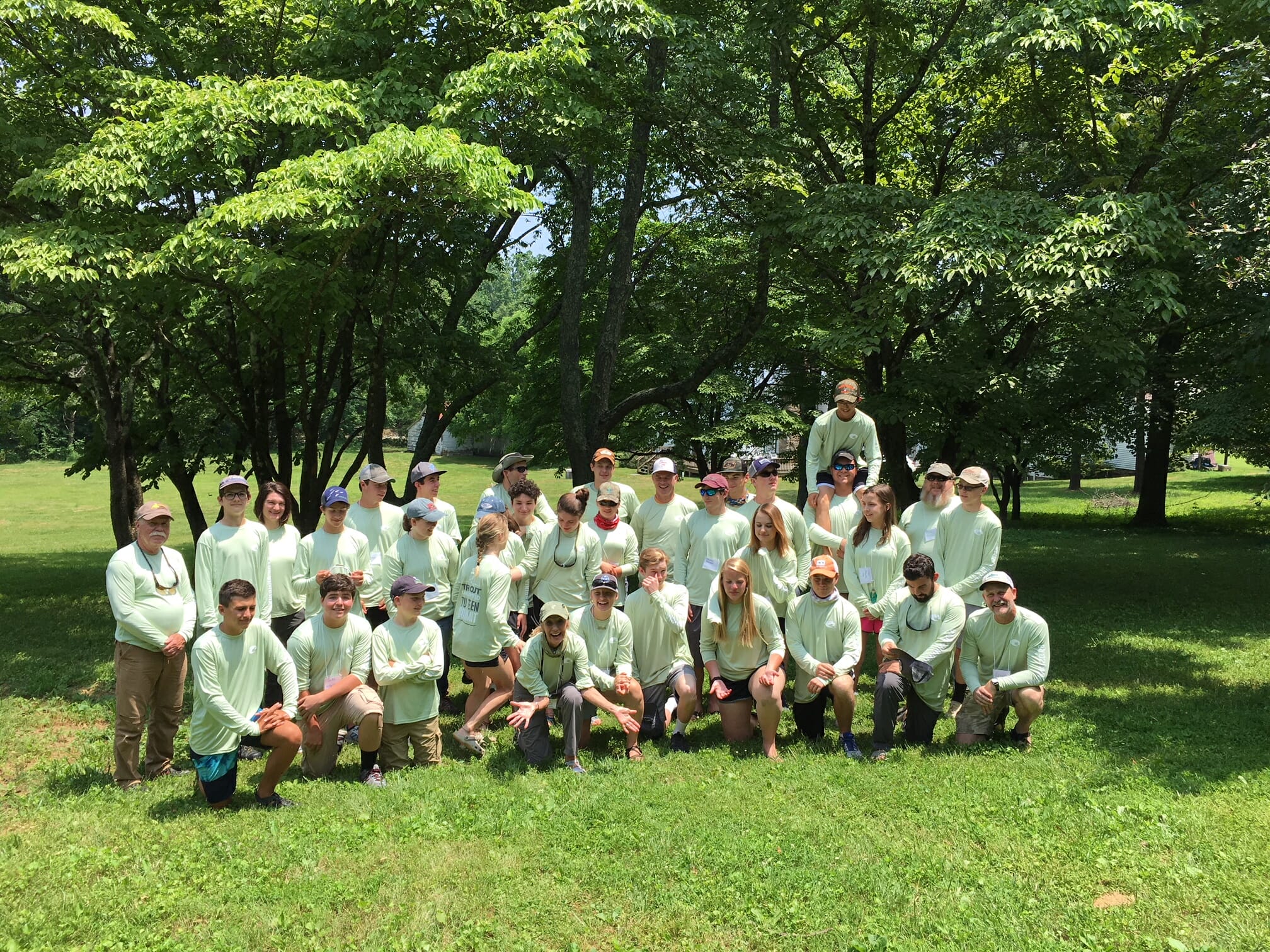By Chris Wood
Jake Marshall, whose Dad helped to organize TroutFest, a huge TU event in Texas that raises a lot of money for youth education through the Tomorrow Fund, said he was there “to help conserve our water
s.”
Laurel Smith, a graduate of the amazing Georgia Trout Camp, said she was there “to see new places and meet people with some passion.”
Thomas Rotman, from the great state of New Jersey said he was there because “I miss 50 percent of my fish.”
The 26 kids came from all over the nation. One was from Bristol, Vt., where I swabbed cow stalls at a farm as a junior in college. Three came from New Jersey, and I had to embarrassingly admit to them I haven’t fished for trout in the Garden State even though I am its chief advocate (I took up fly fishing after I left the Promised Land). One young woman, 16, told me that she had been leading a restoration project for her local chapter in Wyoming “for a few years.”
Welcome to the 7th annual Trout Unlimited Teen Summit. Volunteers such as Scott Novotny, Judi Sittler, and Mike Mihalas made the event possible. It was held this year at Graves Mountain Lodge in Virginia; and the brainchild of Franklin Tate, who leads TU’s youth education work. I met Franklin eight years ago, we were bemoaning the fact that—even though the chapters and councils had robust youth camps—the national organization focused on kids by offering a “youth/senior citizen” membership level. Franklin, and his team, changed all of that by developing a “stream of engagement” to work with kids at every level from elementary school and Trout in the Classroom through the more than 100 Five Rivers Programs in colleges and universities across the country.
The kids at the Teen Summit are the tweeners. They have yet to graduate high school, but have likely attended a TU youth camp. They show a strong inclination toward conservation. And they love to fish. Almost half of the kids at the Teen Summit were young women.
Thinking of one of my own kids, I asked, “What do you do if you have a shy kid?” The teens in the room pointed me to the meeting rules posted on the wall that they developed on their own. One of which translated to step out of your comfort zone. If you see a kid that looks lonely or uncomfortable, go over to her/him. Lisa Beranek, a TU staff person in the Pacific Northwest helping out at the summit revealed how the evening before during a fly-tying session, a few kids made it a point to engage a few wall-hangers. Those wall-hangers were the first to ask me questions the next day.
I shared my own path to conservation with the teen leaders, and was blown away by their follow-up questions. “How does your organization navigate politics in four-year election swings?” “Which headwaters are most at-risk in the Nation?” “In the face of floods, drought and fire, how do you protect headwater streams?”
I finished my talk, and one young man lingered behind. He had earned the right to shadow a governor of his state for a week, and asked me what he should advocate for. I said, “Tell him that headwaters matter. Tell him that small seasonal streams are hugely important for fish.” As we grabbed brown bags filled with turkey sandwiches and, curiously, peanut butter and jelly sandwiches, he asked, “I should also emphasize that protecting those streams reduces downstream water filtration costs for local communities, right?”
It is easy to become cynical about the future, but not if you spend time with it.
Chris Wood is TU’s president and CEO. He lives in Washington, D.C., and works from TU’s Arlington, Va., headquarters.



